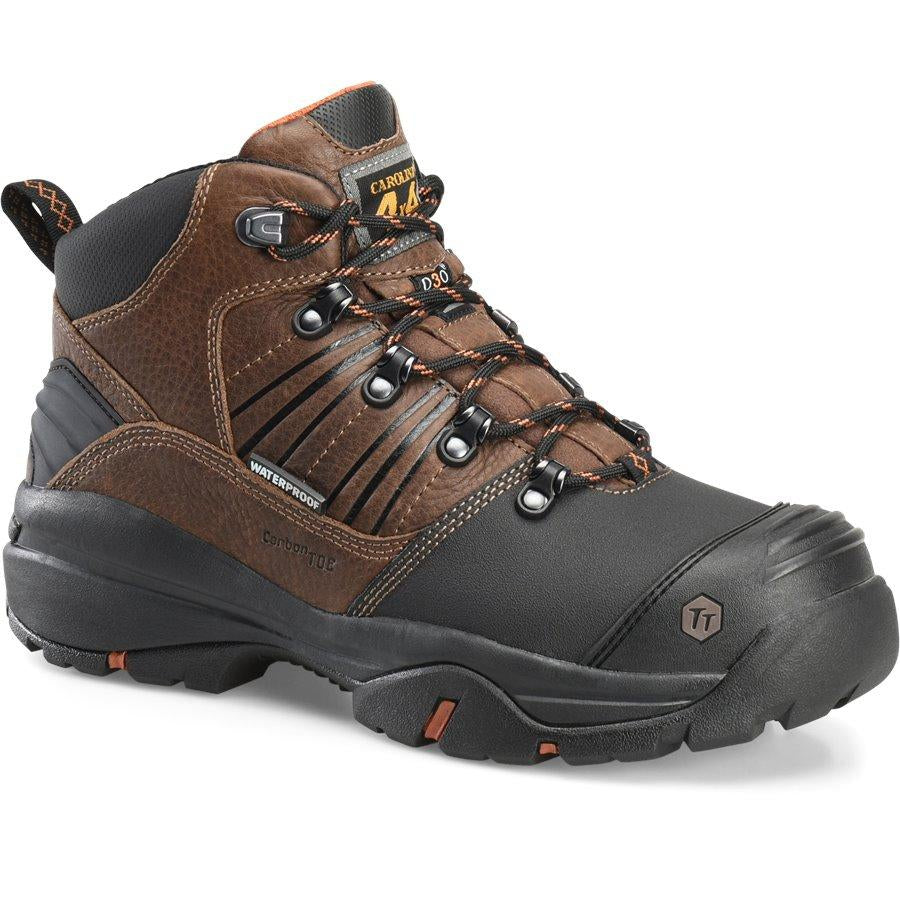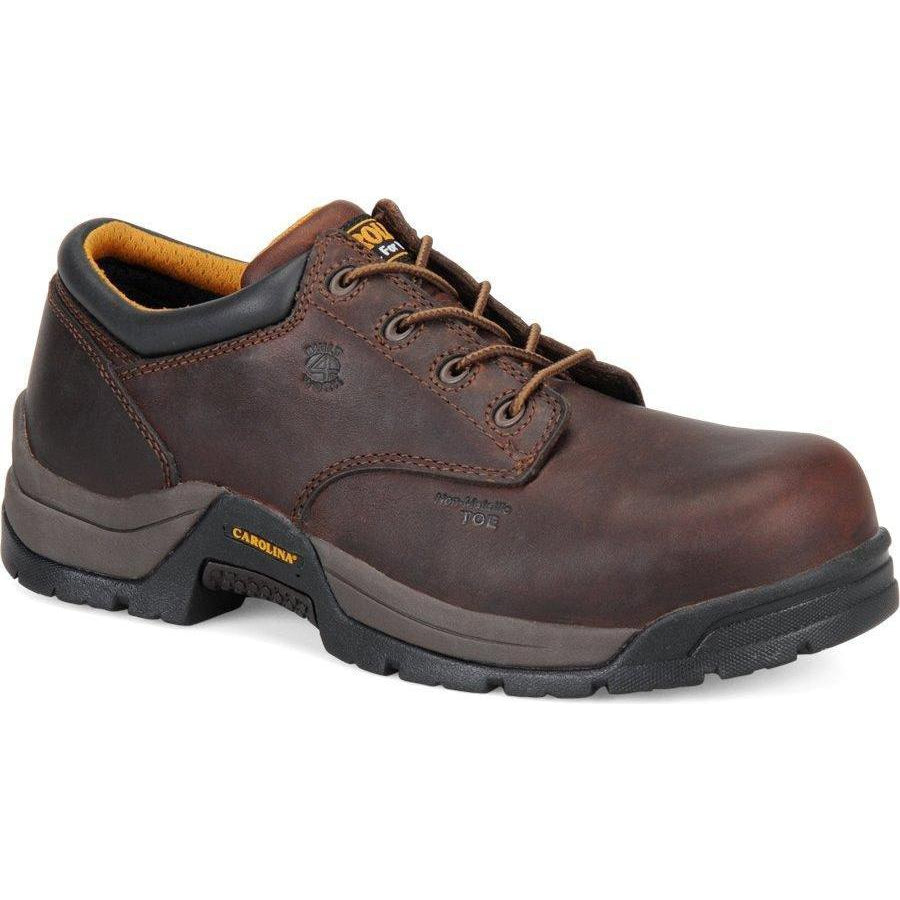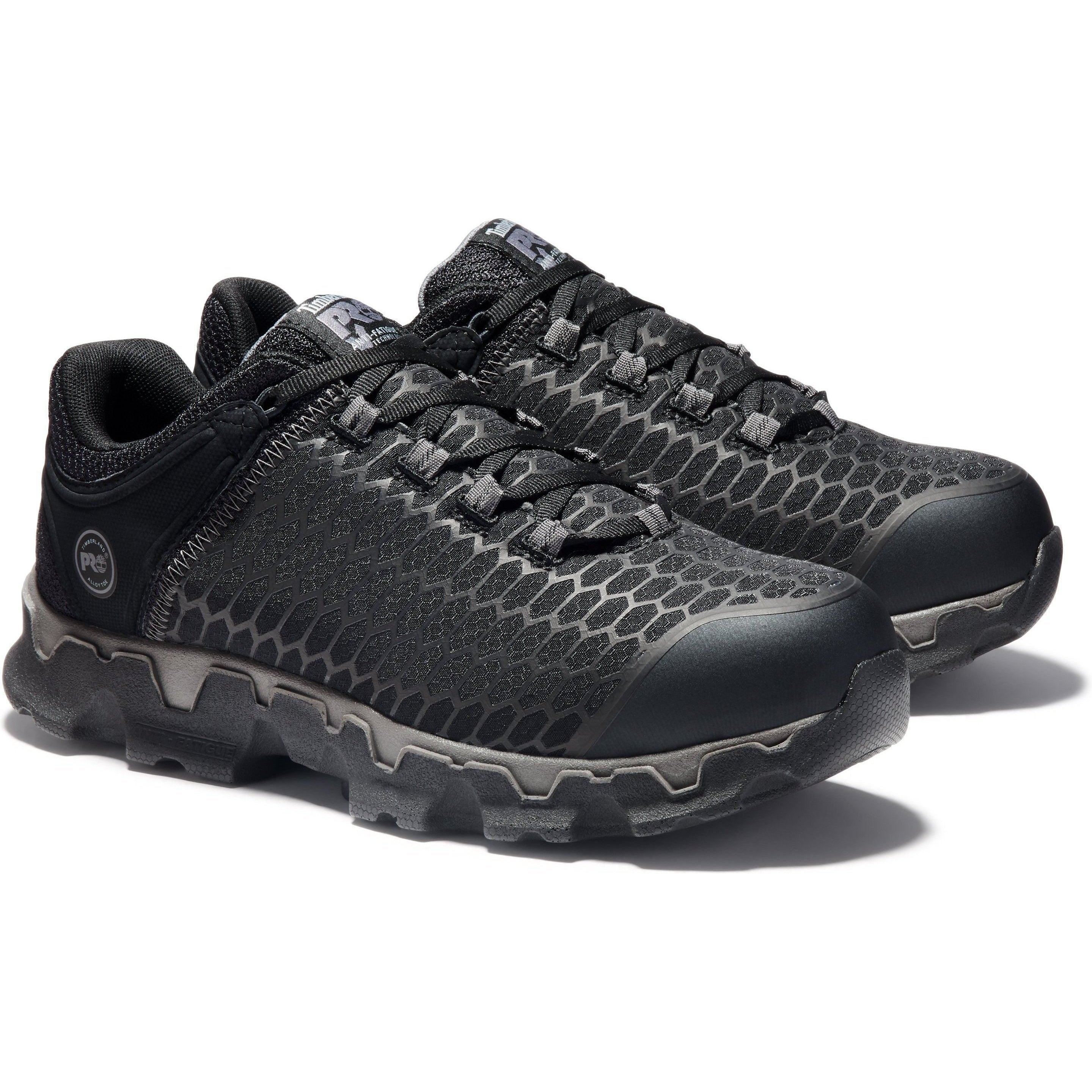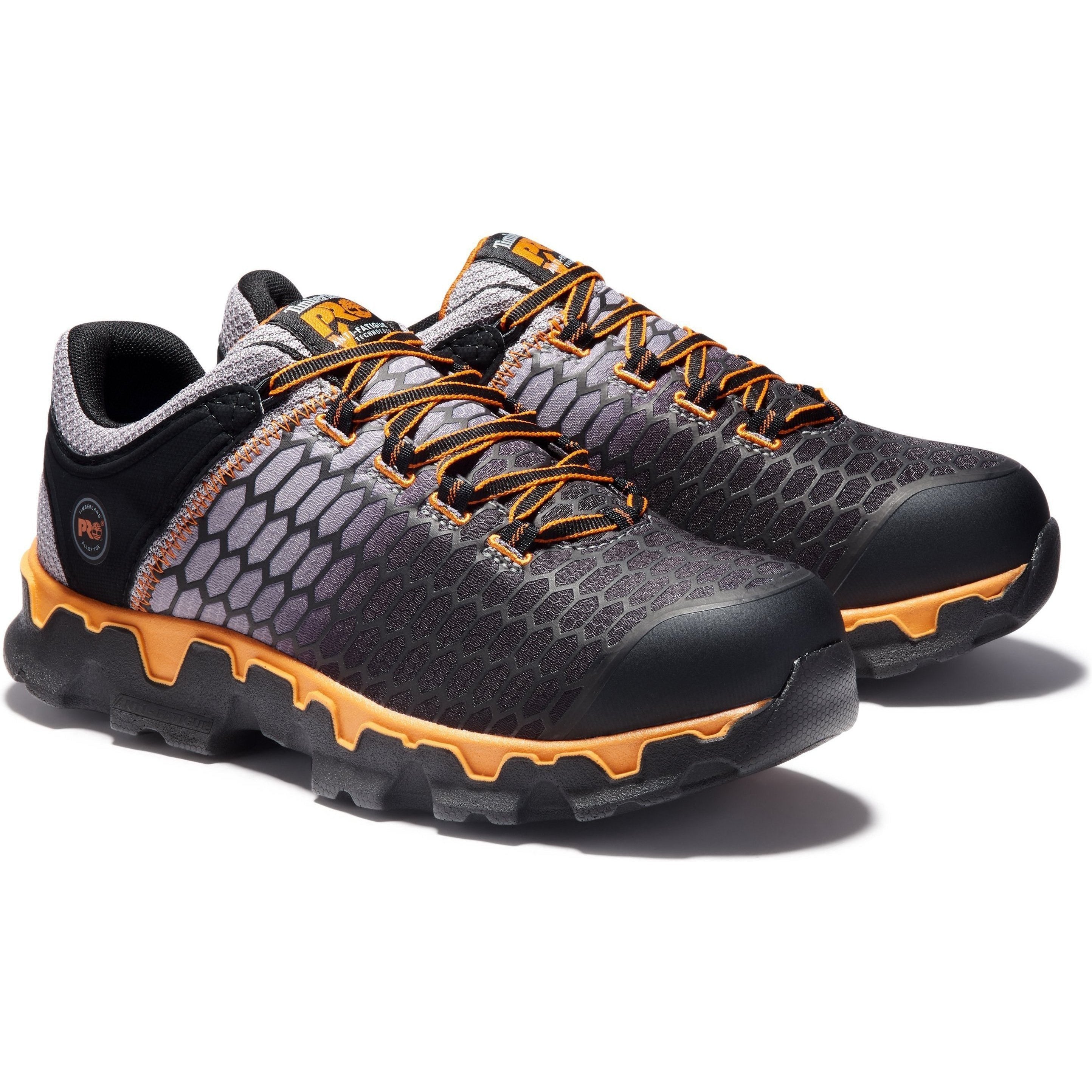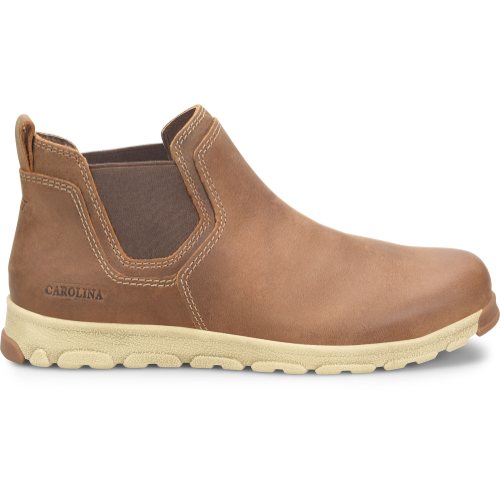Would you sacrifice our planet and living conditions for future generations for a pair of sneakers? Didn't think so. Are you tired of feeling guilty about your footwear choices? Do you want to make a positive impact on the environment and support ethical standards in the fashion industry? Then, it's time to dive into eco-friendly, sustainable and men's comfortable work shoes.
In this guide, we'll explore the world of eco-friendly footwear, from the materials used to the manufacturing process and the impact on both the environment and society. Brands like Timberland Pro have taken steps toward sustainability by incorporating recycled materials and responsible manufacturing practices.
Let's dive in and discover how we can make a difference by making better choices, one step at a time.
What Are Sustainable Shoes?
Sustainable shoes are footwear made from eco-friendly materials that have minimal environmental impacts during production and use. They're designed to reduce the carbon footprint of the footwear industry and promote ethical standards in manufacturing. Sustainable shoes are an eco-friendly option for eco-conscious footwear shoppers who are looking for stylish and durable footwear.
Eco-Friendly Shoes: How Can Shoes Be Sustainable?
In the quest for sustainable footwear, the way quality shoes are made holds the key to a greener future. Embracing sustainable materials means veering away from harmful toxic chemicals, materials, and production processes that plague the environment. From recycled footwear repurposing old materials to creating something new and stylish to the use of high-quality, durable components, every step in the production process matters.
But it's not just about the product – it's about the journey, the entire supply chain. Sustainable shoes aren't just eco-friendly end products; they embody a commitment to ethical practices and transparency throughout their creation, ensuring that every resource, from sourcing to manufacturing, aligns with the ethos of environmental responsibility.
This also includes fostering safe working conditions in factories and distribution centers. Prioritizing protective equipment for employees ensures ethical working conditions and a work environment that not only champions eco-friendly practices but also values the well-being of those bringing these shoes to life, as opposed to inhumane working conditions caused by the high demand of mass production.
[prc-collections-carousel]
Materials Used in Sustainable Shoes

Wondering what sustainable materials can shoes be made from? Recycled materials such as recycled rubber and polyester are frequently used to create sustainable shoes. These materials have a lower environmental footprint than those made from raw materials.
Natural rubber is another preferred material as it's biodegradable, meaning it won't end up in landfills. Sustainable sneaker brands like Allbirds and Veja have made great use of recycled materials and ethically harvested natural rubber in their shoe range.
Here's a quick rundown of the most common materials used in producing sustainable shoes:
- Recycled Plastic: Repurposed plastic bottles or ocean plastics turned into yarn or fabric.
- Organic Cotton: Grown without synthetic pesticides or fertilizers, reducing environmental impact.
- Hemp: Durable, fast-growing, and requires fewer resources to cultivate.
- Cork: Renewable and biodegradable, often used in sustainable shoe soles.
- Recycled Rubber: Reclaimed rubber from old tires or other sources, reducing waste.
- Recycled Polyester: Made from post-consumer waste like PET bottles.
- Bamboo: Fast-growing and renewable, used for fabric or insoles.
- Tencel/Lyocell: Derived from sustainably sourced wood pulp, known for its softness and eco-friendly production process.
- Piñatex (Pineapple Leather): Made from pineapple leaf fibers, a cruelty-free alternative to traditional leather.
- Wool: Natural and renewable, often sourced ethically from sheep.
These materials are favored in sustainable shoe production due to their reduced environmental impact and their ability to maintain quality and durability in footwear.
The Manufacturing Process and Ethical Standards
One critical issue in the shoe industry is the use of harmful chemicals in the production process. These chemicals can have severe environmental and social impacts. Sustainable shoe brands, however, prioritize ethical manufacturing, using manufacturing facilities designed to limit environmental impacts and ensure fair wages for their workers. By supporting these brands, consumers take the first step in promoting ethical standards and social impacts.
The footwear industry has been growing in recent years. Global revenues in 2023 are estimated to reach USD 93.6 billion, a 6.7% year-over-year rise. In 2022, approximately 24 billion pairs of footwear were produced around the world. The problem?
- Use of non-renewable and toxic materials, such as petroleum-based plastics, synthetic rubber, and chromium-tanned leather, which contribute to greenhouse gas emissions, water pollution, and waste generation
- High consumption of water and energy in the production processes, especially for cotton and leather, which deplete natural resources and increase the carbon footprint
- Poor working conditions and low wages of many footwear workers, especially in developing countries, which violate human rights and labor standards
- The short lifespan and low recyclability of many shoes which create more waste and landfill problems
The shoe industry is notorious for its impact on the environment, and switching to sustainable shoes is one way to reduce it. In addition to reducing carbon footprints and promoting ethical standards, sustainable shoes are also of higher quality than their non-sustainable counterparts. As a result, sustainable shoes last longer, reducing the need to buy a new pair of shoes often.
With many sustainable materials available, sustainable footwear may soon become the norm. By purchasing eco-friendly materials, we can raise awareness of the future of shoe recycling and protect our environment for future generations.
The Future of Sustainable Shoes
According to a report by Grand View Research, the global sustainable footwear market size was estimated at USD 8 billion in 2022 and is projected to grow at a compound annual growth rate (CAGR) of 6.2% from 2023 to 2030, driven by growing consumer awareness and concern for environmental sustainability, as well as advancements in sustainable materials and production methods.
Some of the key factors influencing the rising demand for sustainable footwear are:
- Government regulations and incentives promoting sustainable practices in the fashion industry
- The rise of ethical and socially responsible consumer behavior
- The adoption of circular fashion models and recycling initiatives
- The innovation of new and alternative materials, such as recycled PET plastics, organic cotton, and plant-based leather
- The digitization of production processes and the use of 3-D printing technology
It's safe to say the future of sustainable footwear is looking bright. Shoe companies are stepping up and creating products that prioritize eco-friendliness, ethical standards, and higher quality. With the advent of new technologies like 3D printing and the availability of eco-friendly materials, the possibilities for innovative, sustainable shoes are endless.
We can already see sustainable footwear designers like Stella McCartney and Veja leading the way in sustainable shoe fashion. On that note...
[prc-collections-carousel]
Examples of Footwear Brands Who Have Embraced Sustainability
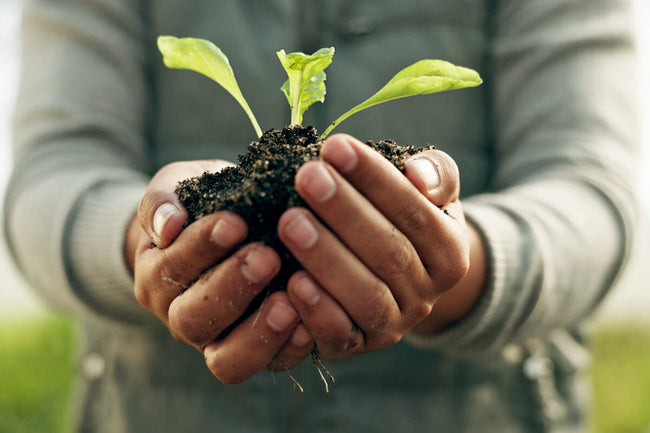
Let's step into a world where footwear manufacturers aren't just about style but champions of change. These trailblazing brands aren't afraid to walk the walk when it comes to sustainability. From meticulous attention to an ethical supply chain to a laser focus on reducing their ecological impact, they've redefined what it means to leave a footprint. It's not just about the shoes they create; it's about their impact on people and the planet.
Through stringent criteria around labor practices and an unwavering commitment to ethical labor practices and fair working conditions, these brands are paving the way for a footwear revolution that's as much about heart as it is about sole. Now, let's explore these game-changers reshaping the industry.
Some of the leading brands in the sustainable footwear market include:
- Nike, which launched its recyclable shoe, the ISPA Link Axis, in September 2023
- Adidas, which partnered with Fashion for Good and FastFeetGrinded to pilot a footwear recycling program in August 2023
- Allbirds uses natural and renewable materials, such as wool, eucalyptus, and sugarcane, to make its shoes
- Veja, which sources organic cotton, wild rubber, and recycled plastic bottles for its sneakers
- Rothy’s, which transforms discarded plastic water bottles into stylish and comfortable flats
- Timberland is another brand committed to creating high-quality and eco-friendly products, such as their GreenStride collection, which made a splash featuring shoes made with renewable and recycled materials that has set ambitious sustainability goals for 2030.
What Should I Look for in a Sustainable Footwear Brand?
When seeking a sustainable footwear brand, several key factors are worth considering:
- Materials: Look for brands using eco-friendly and recycled materials like organic cotton, recycled plastics, or innovative alternatives such as pineapple leaf fibers (Piñatex) or Tencel.
- Transparency: Seek brands that are transparent about their sourcing, manufacturing processes, and environmental impact to avoid those with ethical issues, such as animal treatment issues and inhumane working conditions.
- Ethical Manufacturing: Consider brands that prioritize ethical working conditions, safe working conditions, and fair living wages throughout their supply chain.
- Durability and Quality: Sustainable shoes should still be high-quality and durable to ensure they last longer, reducing the need for frequent replacements. After all, reusing materials is a crucial aspect of sustainability.
- Recycling Programs: Brands that offer recycling or take-back programs for worn-out shoes showcase a commitment to reducing waste.
- Carbon Footprint: Some brands calculate and reduce their carbon footprint, aiming for lower emissions in their production processes and shipping.
- Innovation: Brands investing in sustainable technologies or innovative practices to reduce environmental impact are often leading the way in sustainable footwear.
By considering these aspects, you can make informed choices that align with your values and contribute positively to a more sustainable future.
Sustainability Certifications for Footwear
Sustainable certifications are specific standards and labels that verify the compliance of footwear products and processes with certain sustainability requirements, such as organic, fair trade, vegan, or recycled. Several certifications like B Corp, Fair Trade, or specific material certifications can signal a footwear brand's commitment to sustainability and help you keep track.
Some of the notable ones to look out for include:
- B Corp Certification: This certification evaluates a company's social and environmental performance, accountability, and transparency across various sectors, ensuring a holistic commitment to sustainability.
- Global Organic Textile Standard (GOTS): Specifically for textiles, including shoes made with organic fibers, this certification ensures that the materials used meet strict organic and environmental criteria throughout the production process.
- Bluesign: This certification focuses on the textile industry, ensuring that materials, processes, and products are safe for the environment, workers, and consumers. It emphasizes resource efficiency, occupational health, and safety.
- Fair Trade Certification: Brands with this certification ensure fair wages and better working conditions for workers involved in the supply chain, promoting social and economic development.
- Leather Working Group (LWG): For shoes made from leather, this certification evaluates the environmental compliance and performance of leather manufacturers.
- Cradle to Cradle (C2C) Certification: Indicates that the product has been designed with materials that are safe for human health and can be easily recycled or composted at the end of their life cycle.
Make Your Impact with Sustainable Shoes
Eco-friendly footwear isn't just a passing trend; it's the future of moving toward an ethical footwear industry. By investing in sustainable shoes, you'll be making a positive impact on the environment and supporting ethical standards. Programs like an employee footwear program can also help workplaces provide sustainable options to their teams, supporting both safety and eco-friendly practices.
From eco-friendly materials to ethical standards, the world of sustainable footwear has a lot to offer. Our choices shouldn't come at the cost of our planet or the well-being of future generations. Embracing sustainable shoes means saying no to compromising our world or the living conditions of those who craft them.
As sustainable footwear production advances, an exciting array of eco-friendly options is steadily expanding, offering an ever-growing selection of sustainable footwear choices to explore. At Overlook Boots, the world is your oyster – browse away!
